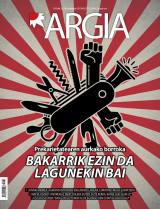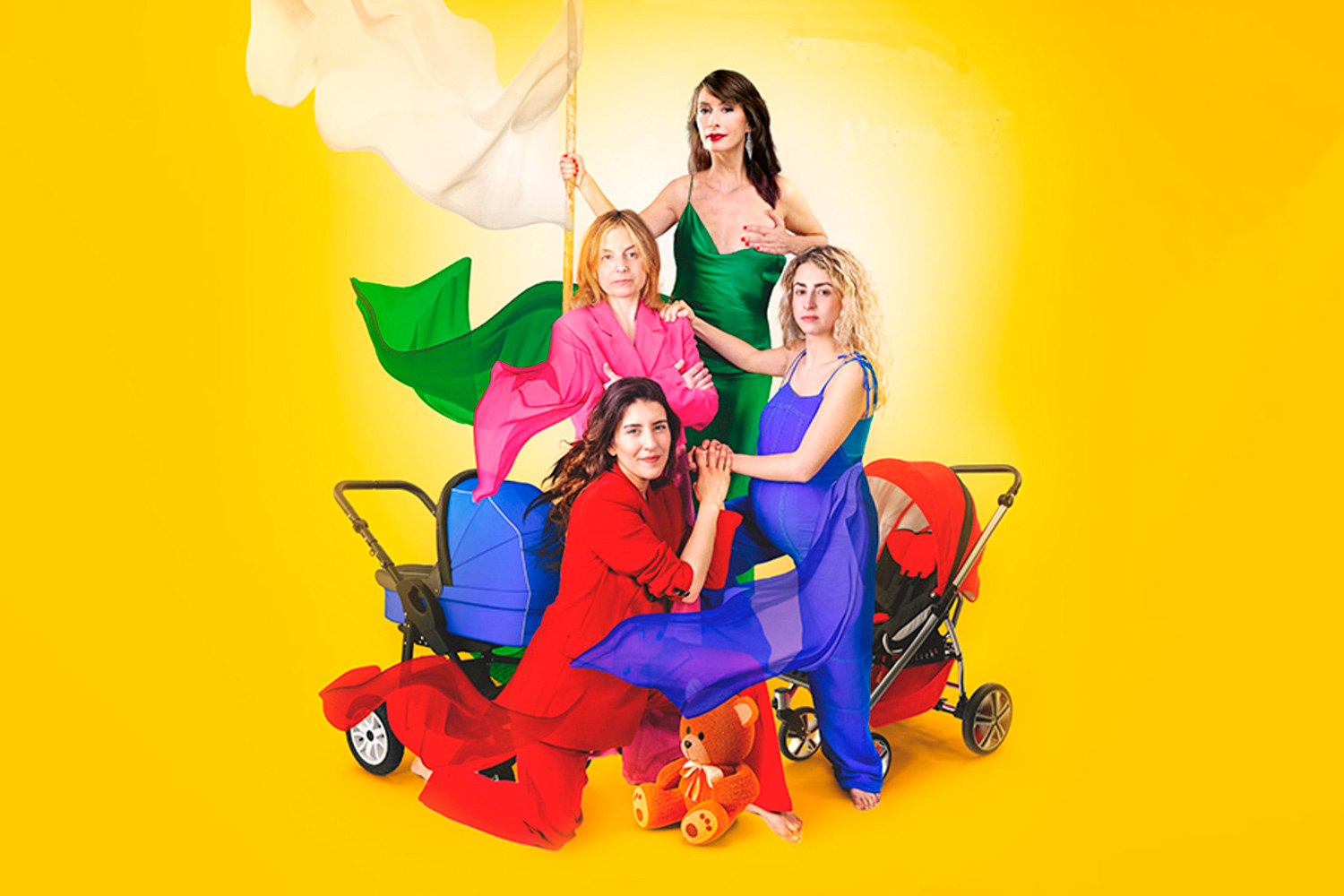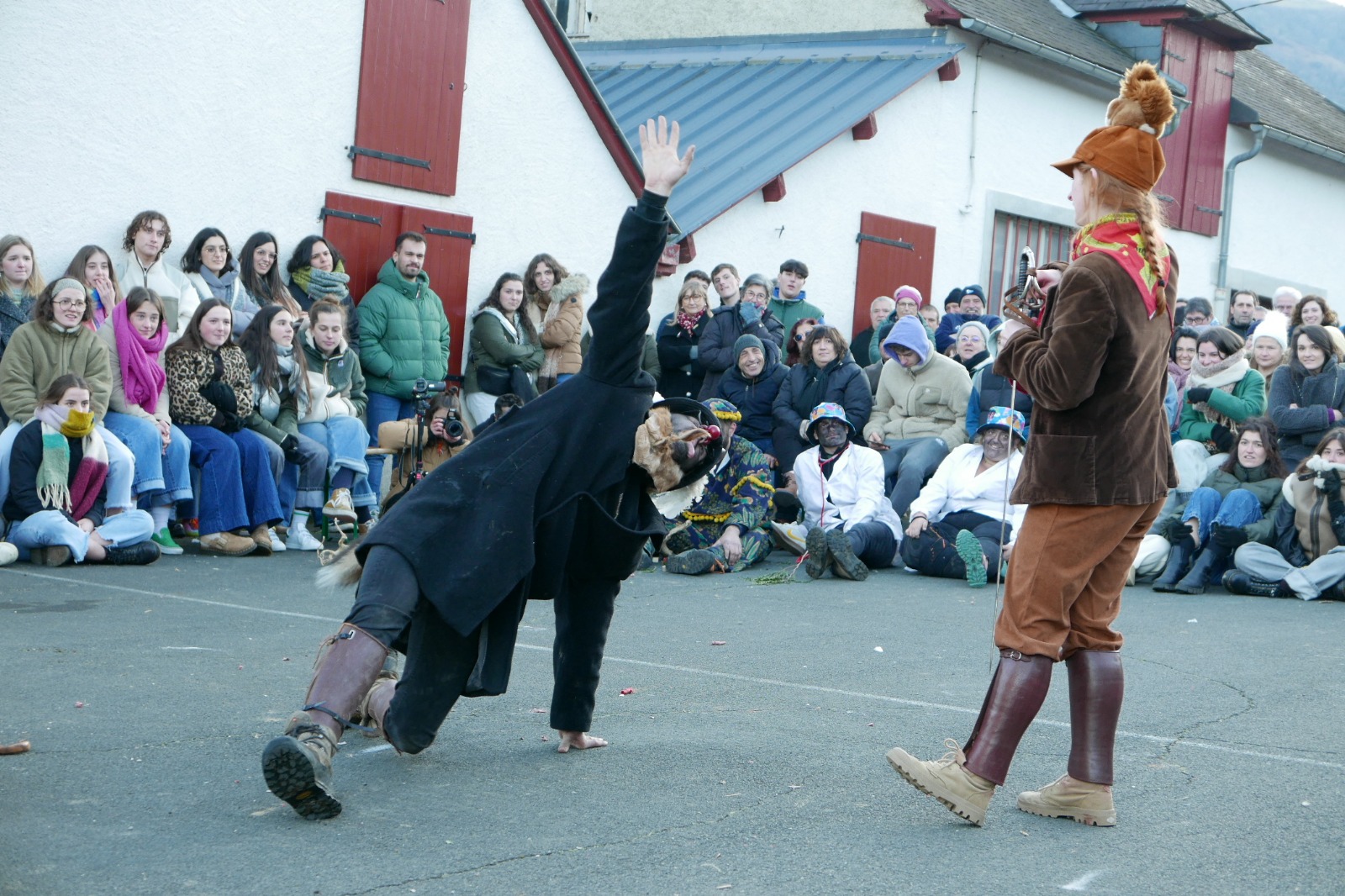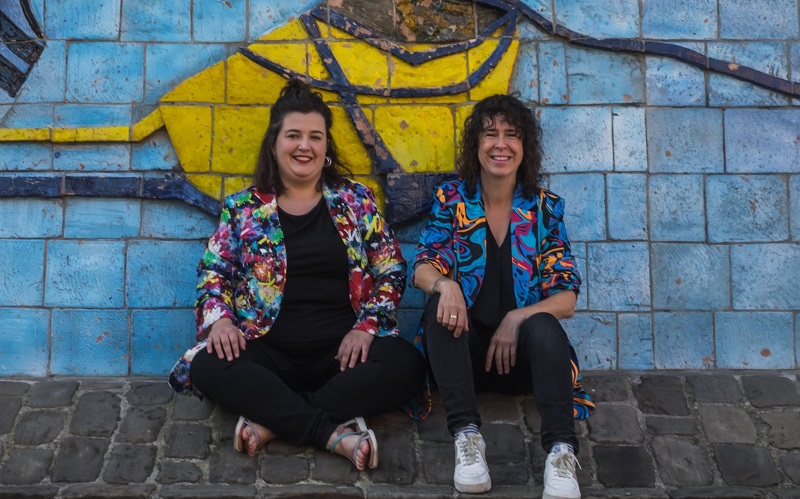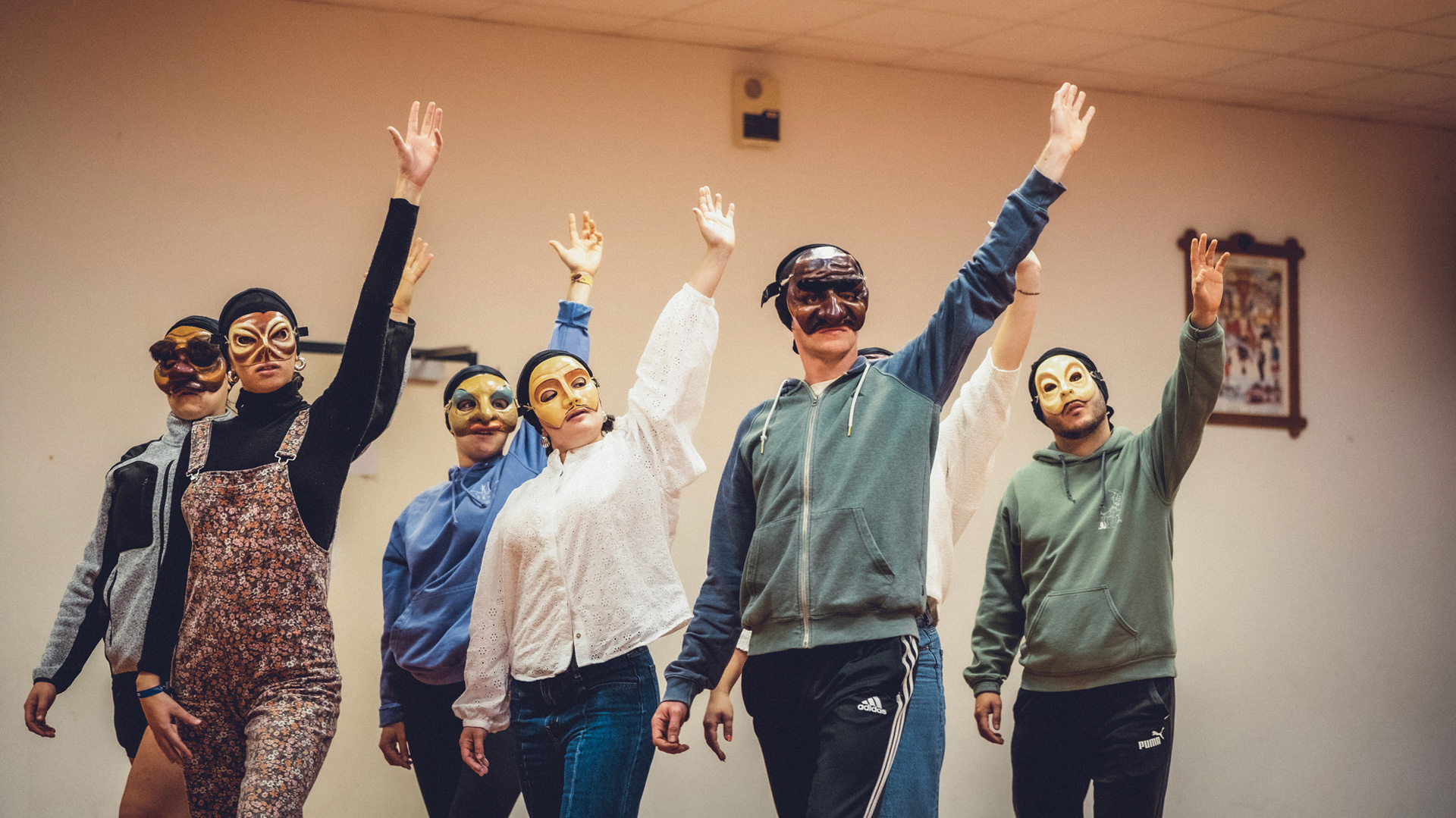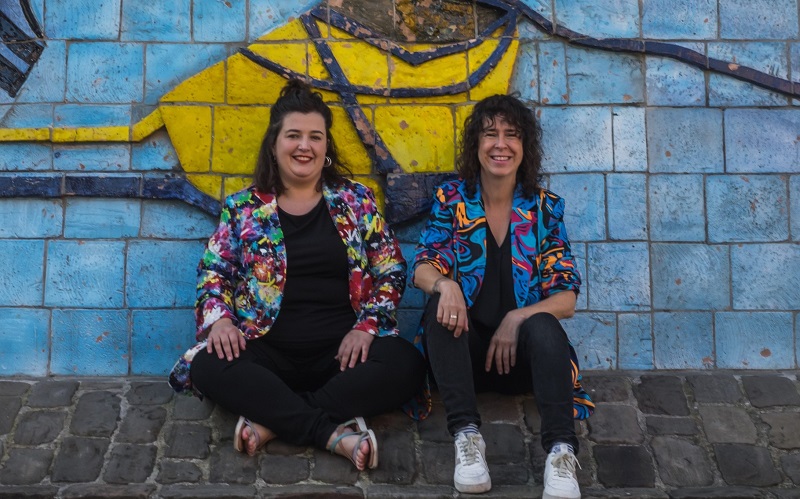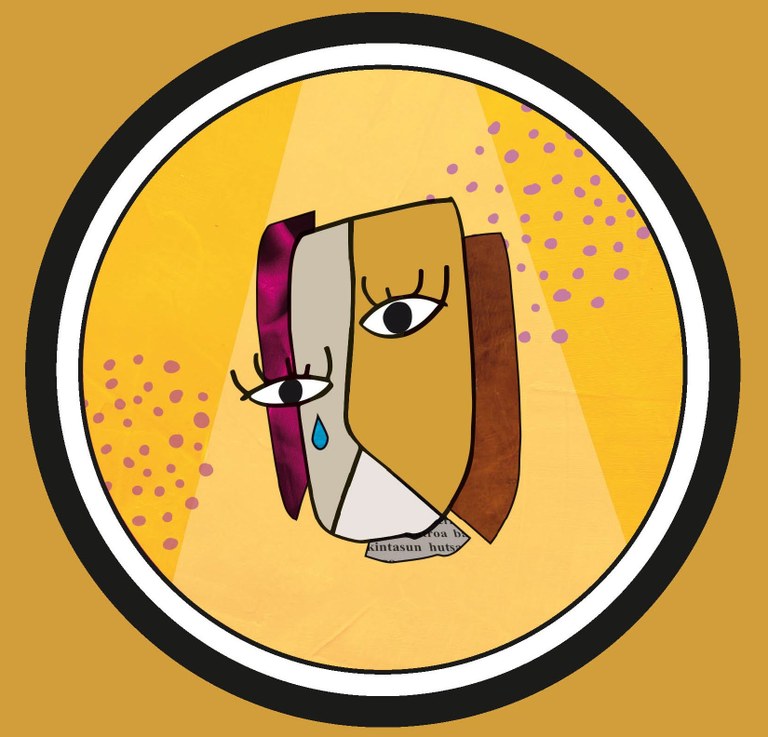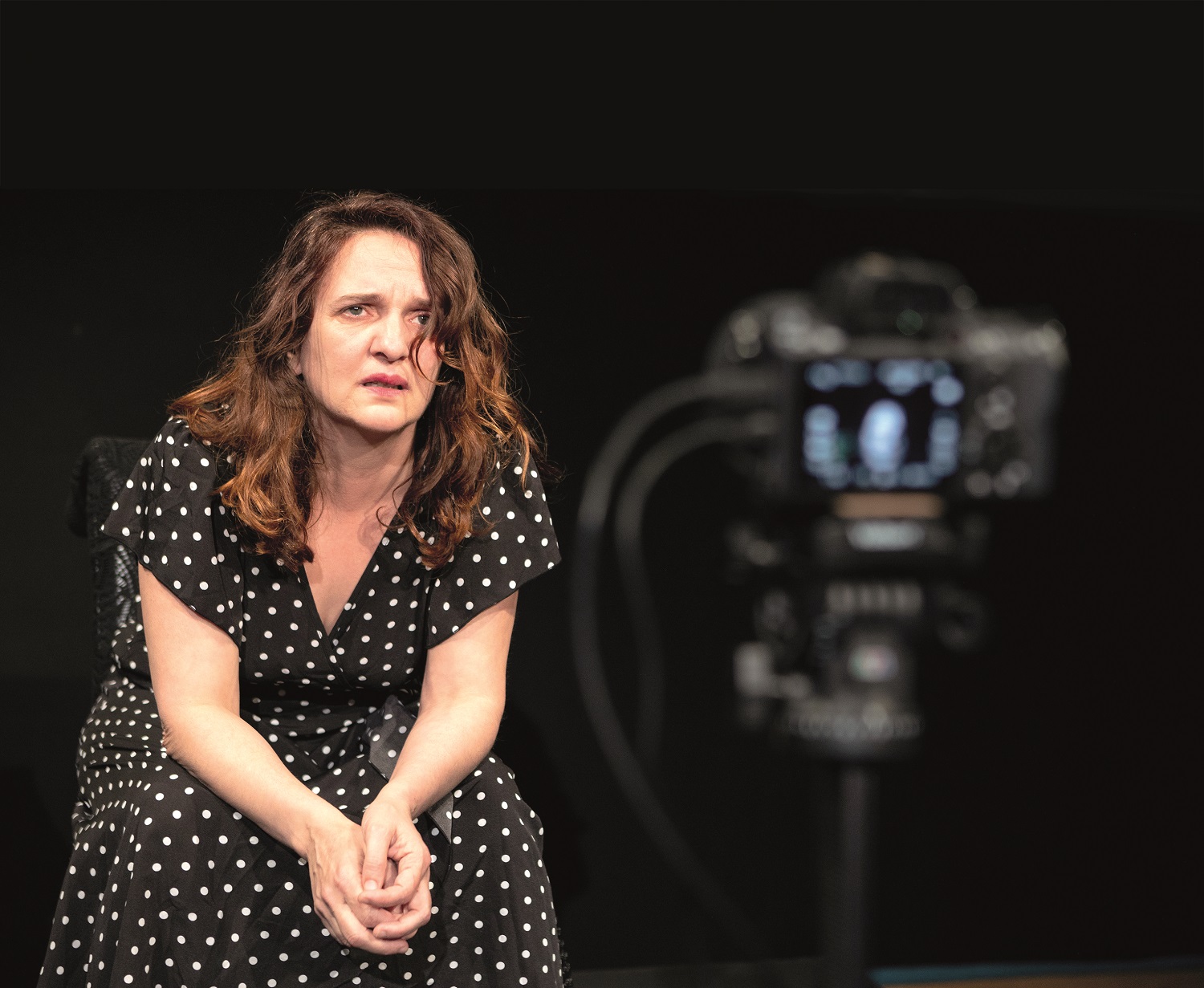Weaving Bodies
- At the beginning of the year, the course “Gender Practices” organized by Ehuntze Sormen Espazioa and the Metrokoadroka collective was organised in Oiartzun. They taught that you can create from your body, speak from your body, and communicate from your body. No big speeches about gender, with play and intuition as partners.

On the 16th Arraskularre Street of Oiartzun there is a small creative space. It brings together the study of the artist Idoia Beratarbide, the Marodi creations and the collective Metrokoadroka. The Beratarbide itself offers creative workshops. With Maria de Berardo she creates designer clothing and accessories and theatrical costumes, as well as office and seat for Metrokoadroka Kolektiboa. Pulling creativity, last December two workshops were organized, one inspired by the book Gender Practices and directed by Iratxe Retolaza, and the other based on the book King Kong theory by Virginia Despentes with Ainara Lasa. Within this cycle they created the four-day course entitled “Gender Practices”.

In Oiartzun, Metrokoadroka Kolektiboa has been in the movement created by the Theatre Group in recent years. Strong theatre programming has been created in the village and monthly theatrical performances have achieved a faithful audience. They saw the perfect time to organize a course like “Gender Practices” aimed at creativity and not at mere programming.
In the course of four days, the actors Miren Gaztañaga and Ainara Gurrutxaga were in charge of guiding the morning sessions, the colleagues of Metrokoadroka in the afternoon. The group consists of Idoia Beratarbide and Oier Guillan. In the collective, they attach great importance to creativity and wanted to do a kind of laboratory through the course “Gender Practices”. “At first we were afraid that people would sign up or not and then see if we refused,” says Beratarbide. The people of Oiartzun and the surrounding area participated and were glad that the subject was of interest to the people.
Guillan has stressed that a diverse group met, “with little experience in theatre, with a lot of experience and without ever working, but with a subject that interests them”. That diversity, however, was not an obstacle, “from the beginning we decided that Miren Gaztañaga, Ainara Gurrutxaga and the members of Metrokoadroka accepted and used it. Energy generation with space for everyone. Because our way of understanding theater is part of the game and there are many kinds of games that generate special equipment and energy.” Gaztañaga opened the doors of the Oiartzun theatre group and opened the course. For him “it was a privilege to give class on the first day. We started to get to know each other and to warm up the machinery. There were people of very different ages and profiles, but they all wanted to work.” In describing the group, Gurrutxaga agrees with: “They participated very generously in all the proposals, and that is a passing!”
From discourse to body
Gender has always been at the heart of the creative and weaving processes of the Metrokoadroka Collective. “We will splash exercises on gender issues, but without imposing speeches, so that everyone will give their eyes,” they stressed on the pages distributed before starting.

Look at Gaztañaga: “One of the decisions was not to rationalize the classes so that the participants felt freer. We didn’t want to fall into speeches.”
The title of these meetings contextualized the situation a lot. “One of the decisions was not to rationalize the classes so that participants would feel freer,” says Gaztañaga. “Because the proposed exercises had that within them and we didn’t want to fall into speeches.” How do you work gender in theater through the body? “Everything we do resonates with the body and the body is in contact with gender at every moment or with different constructed concepts. If you are clear about what you want to work, then you enter the game and only the results come.” Gaztañaga believes that the presence of the body is underestimated and says that it goes beyond what the words have. “It’s terrible what the body counts as it is. It can count 10,000 secrets, joys, desires and sorrows.”
Ainara Gurrutxaga: "In theater, the important thing is the experience. Discovering each other's boundaries, looking for other ways, transforming our bodies -- let's break the schemas."
When Gurrutxaga started studying theater, she had very concrete roles, depending on gender and age. “My roles were always my mother, my wife, my daughter, my nun, my prostitute… Over the years, I discovered another broader conception of the theater and became not only a man, but also an animal or a natural element. This made my self-concept explode. When I'm on stage, I'm first of all a body, not a woman. That’s why I think it’s important to go through the body, because it’s the key to going beyond cultural constructions.” Gurrutxaga has also referred to the contributions that theatre can make to gender work. “To open eyes, to open opportunities, to accommodate the unknown… In theatre, the important thing is the experience, the experience experienced in the first person (and then collectively). So, discovering each other's boundaries, looking for other ways, breaking stereotypes, transforming our bodies, risking, playing -- let's break schemes. The theories are fine, but also the debates, of course, but through theatre the experiences can be materialized.”
TRAVEL OF PARTICIPANTS
Oiartzuarras Eñaut Retegi, Luix Mitxelena and PILI Arbelaitz participated. Retegi, 34, is a playwright and has a long history of film and theater. The Metrokoadroka and Ehuntz participated in two workshops organized in December and in their title read the “gender”, and as I wanted to go deeper into the subject, he pointed out. “I expected a theoretical course based on traditional teaching.” At first he asked where the gender issue was, “but for four days everything was taking shape.” At the end of the week, each participant made a creative piece: “We created very different things and they were very rich. The teachers had pressed the right keys to get that wealth from us.” It has the feeling of having learned a theater without gender, based on the body.

Luix Mitxelena, 16, is a member of the Oiartzun youth theatre group and intends to conduct future theatre studies. He thought they would work the traditional theater, “I didn’t expect to work creation”; he says he enjoyed it a lot, creating and inventing new characters. “I’ve learned what it is to start creating from scratch.” It didn't just do that. “I’ve realized that the body also speaks, a gaze or a movement, and that you can also communicate.”
Pili Arbelaitz is a member of Oiartzun’s Txinalka adult theatre group. He signed up in the hope that his play would work well for him. He says he was a little scared to read the duties that had been given to him before, but as I made them “I was easily completed and I felt comfortable.” At Txinalka they perform various creative exercises and it is not very strange that they are proposed. “In the morning I enjoyed Miren and Ainara a lot.” It tells us about a walk through the cemetery in which we have had to choose one of the creative afternoon exercises. “It’s nice for me to be with new people and people of different ages.”
Arizona
Actors: Justin Garfield and Jon Plazaola...
WHEN: January 26th.
IN WHICH: The New Culture Center. In the square.
-------------------------------------------
The couple Margaret (Aitziber Garmendia) and George (Jon Plazaola) leave Idaho to guard the border between... [+]
AMAK
Company: Txalo teatroa.
Created by:Elena Díaz.
Address: Begoña Bilbao.
Actors: Finally, Ibon Gaztañazpi will account for the details of Intza Alkain, Tania Fornieles, Oihana Maritorena and IRAITZ Lizarraga.
When: 10 January.
Where: Auditorio Itsas Etxea... [+]
Basabürüako ibar eskuineko gazteek lehen maskarada arrakastatsua eman dute igandean, Lakarrin.
By:
Mirari Martiarena and Idoia Torrealdai.
When: 6 December.
Where: In the San Agustín cultural center of Durango.
------------------------------------------------------
The fourth wall breaks and interferes directly, standing and fearless. ZtandaP is a way of counting... [+]
By:
Mirari Martiarena and Idoia Torrealdai.
When: 6 December.
Where: In the San Agustín cultural center of Durango.
-------------------------------------------------
The fourth wall breaks and interferes directly, standing and fearless. ZtandaP is a way of counting from... [+]
We're in chaos. That has been said to us by the French media, which Parliament has brought down the government on 4 December. The fear that political, institutional, social, economic chaos will rage us all in the horde of hell comes to our veins. What comedy we're going to play... [+]
Fight and metamorphosis of a woman
By: Eneko Sagardoy and Vito Rogado.
WHEN: 1 December.
WHERE: Serantes Room of Santurtzi.
-----------------------------------------------------------
Immediately after proposing the plan, the person who decided to buy the tickets online... [+]
DEBT
Text and address: Agurtzane Intxaurraga.
Actors: Look at Gaztañaga, Iñake Irastorza, Jabi Barandiaran.
When and where: 25 October, Gazteszena (Donostia).
----------------------------------------
To the flower that is looking for its own light, being grasped at its... [+]







